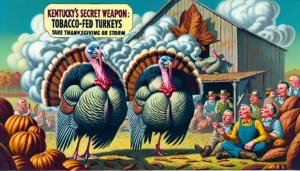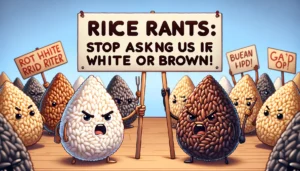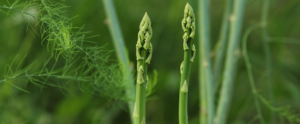
Aerial Seeding The Sky is the Limit 1.jpg
The Skyward Bounty: Farmers’ Euphoria and Birds’ Delight
Farmers Embrace the Celestial Sowing
Across the nation, farmers are replacing their traditional hats with seed-catching buckets, as seeds rain down, marking the dawn of aerial agriculture. Dr. Greenstalk, an agricultural scientist, notes, “This new method could increase germination rates significantly, as seeds are dispersed more evenly and access sunlight more quickly.” His research, published in the Journal of Innovative Farming, supports the farmers’ growing excitement.
Birds Hold Strategic Feasting Meetings

Birds, foreseeing a grand feast, are convening in what appears to be tactical gatherings. “It’s like they’re plotting their approach to this unexpected windfall,” observes local birdwatcher, Sally Wingbeat. These avian strategists are updating their pecking plans, ready to dive into the action as the seeds descend.
Birds Hold Strategic Feasting Meetings: An In-depth Look at Avian Adaptation
In a display of avian intelligence and adaptability, birds of various species have been observed congregating in what can only be described as ‘strategic feasting meetings.’ This fascinating behavior has emerged in response to the novel phenomenon of aerial seeding, a revolutionary agricultural technique where seeds are dispersed from the sky.
The Scene at FarmerCowboy.com
A striking image captured and featured on FarmerCowboy.com shows an assortment of birds – from the nimble sparrow to the majestic eagle – gathered in a field, seemingly in deep discussion. This rare assembly has sparked curiosity and fascination among ornithologists and laypeople alike.
Eyewitness Accounts

Sally Wingbeat, a respected local birdwatcher, shares her firsthand observations: “I’ve never seen anything like this. It’s as if the birds are holding a conference, deliberating on the best strategies to harvest this bounty.” Her accounts suggest a level of communal intelligence and planning previously unattribated to our feathered friends.
Avian Strategy and Communication
Experts speculate that these gatherings indicate a sophisticated level of communication among birds. Dr. Avian Featherly, a renowned ornithologist, explains, “Birds are known for their ability to communicate and coordinate with one another. This behavior could be an evolution of their innate flocking and foraging instincts, amplified by the abundance of food provided by aerial seeding.”
Feasting Meetings: A Detailed Analysis
- Species Collaboration: Observations indicate that birds of different species are coming together, setting aside their natural hierarchies and territorial instincts to partake in the feast. This inter-species collaboration suggests a shared recognition of the opportunity for nourishment.
- Strategic Planning: The birds appear to be engaging in strategic planning, with different groups taking turns to feed while others keep watch for potential threats. This level of organization points to a communal effort to maximize the benefits of the seed showers.
- Learning and Adaptation: Younger birds are seen learning from older, more experienced ones, indicating a transfer of knowledge and tactics. This mentorship showcases the birds’ ability to adapt and educate within their communities.
Scientific Perspectives
Scientists are keen to study this phenomenon further. “These meetings could provide invaluable insights into avian intelligence and social structures,” notes Dr. Featherly. The gatherings offer a live laboratory for researchers to observe decision-making processes, leadership dynamics, and collective intelligence among birds.
Implications for Agriculture and Ecology
The strategic feasting meetings have broader implications for agriculture and local ecosystems. Farmers might need to consider the impact of such organized avian feeding on their crop yields. At the same time, ecologists are monitoring how this abundance of food affects bird populations and behaviors in the long term.
Aerial Seeding: Bird “Takeaways”
The strategic feasting meetings of birds in response to aerial seeding are a testament to the adaptability and intelligence of wildlife. As we delve deeper into this phenomenon, it serves as a reminder of the intricate connections between human agricultural practices and the natural world, highlighting the need for a balanced approach to innovation and environmental stewardship.
Weather Forecasts Now Include Seed Precipitation
Meteorologists are revising their forecast models to predict seed showers, introducing a quirky twist to their daily weather reports. “Carrying an umbrella might protect you from the rain, but you’ll need a bucket for the seeds!” jokes Weatherman Pete, highlighting the shift in local weather preparedness.
The Rise of Aerial Scarecrows
Farmers, not content with just receiving seeds from above, are contemplating the introduction of aerial scarecrows. “If the birds think they’ll have an easy feast, they’re in for a surprise,” declares Farmer Joe, who’s already sketching designs for scarecrows equipped with parachutes.
Fashion Industry Joins the Seed Spectacle

The fashion world is quick to adapt, introducing hats with built-in planters. Now, not only do you catch seeds effortlessly, but you also grow your own mobile garden. “It’s practical, it’s stylish, and it’s sustainable,” comments fashion designer Lila Green, showcasing her latest collection.
The Advent of Seed Catching as a Sport
With seeds falling from the sky, a new sport emerges—seed catching. Competitors from various regions are showcasing their skills, turning what was once a bizarre phenomenon into a competitive and entertaining event. “It’s all about precision and timing,” explains champion seed catcher Rick Grabber.
Tourism Booms in Seed Shower Hotspots
Towns that were once mere dots on the map are now thriving tourist destinations, as people flock to witness and participate in this natural wonder. “We’ve had to introduce seed-catching tours to cater to the demand,” says Mayor Thompson, excited about the economic revival spurred by the seed showers.
Squirrels Plan the Ultimate Heist

In a humorous twist, local squirrels are seen forming alliances, possibly planning a grand heist to capitalize on the nutty downpour. “I’ve never seen them so organized,” chuckles wildlife enthusiast Betty Nutterson, watching the squirrels’ unusually strategic movements.
Seed Parachutes: A Technological Leap
Innovation is in the air, quite literally, as seed manufacturers begin designing seeds with tiny parachutes, aiming for precision planting. “It’s the next step in agricultural technology,” claims inventor Phil Seeder, demonstrating his prototype seed that can land with pinpoint accuracy.
Conspiracies Abound: The Seed Shower Skepticism
Despite the general excitement, a fringe group of conspiracy theorists is speculating about the origins of the seed showers. “It’s too orderly to be natural,” argues conspiracy blogger, Alex Myst, who believes there’s more to the story than meets the eye.
Disclaimer: This article is a work of satire and is entirely fictional. The scenarios, dialogues, characters, and quotes herein are fabricated for comedic and illustrative purposes. Any resemblance to actual events, locales, or persons, living or dead, is purely coincidental. While the concept of seeds raining from the sky offers a whimsical and humorous exploration of agricultural and societal implications, it is not based on real-life occurrences or scientific predictions. No birds, farmers, or fashion designers were consulted in the making of this story, and no squirrels are actually planning a heist (as far as we know). Enjoy this piece with a light heart and a grain of salt (or in this case, a seed).
Originally posted 2014-09-15 00:28:11.
Originally Published at FarmerCowboy.com
2024-11-05 20:15:09
Karl Hoffman is a distinguished agriculturalist with over four decades of experience in sustainable farming practices. He holds a Ph.D. in Agronomy from Cornell University and has made significant contributions as a professor at Iowa State University. Hoffman’s groundbreaking research on integrated pest management and soil health has revolutionized modern agriculture. As a respected farm journalist, his column “Field Notes with Karl Hoffman” and his blog “The Modern Farmer” provide insightful, practical advice to a global audience. Hoffman’s work with the USDA and the United Nations FAO has enhanced food security worldwide. His awards include the USDA’s Distinguished Service Award and the World Food Prize, reflecting his profound impact on agriculture and sustainability.




